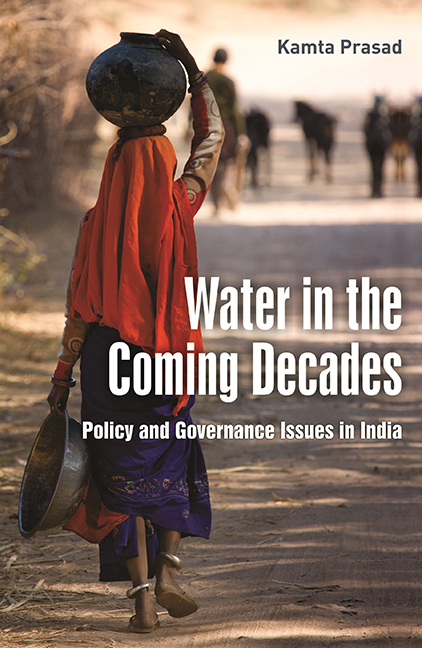Book contents
- Frontmatter
- Dedication
- Contents
- List of Tables
- List of Abbreviations
- Preface
- Acknowledgements
- Section I Overall Perspectives
- Section II Situational Analysis
- Section III Socio-economic, Institutional and Environmental Aspects
- Section IV Technological Options
- Section V Concluding Observations
- References
- Index
18 - Resettlement and Development of Project-affected Persons
Published online by Cambridge University Press: 13 July 2022
- Frontmatter
- Dedication
- Contents
- List of Tables
- List of Abbreviations
- Preface
- Acknowledgements
- Section I Overall Perspectives
- Section II Situational Analysis
- Section III Socio-economic, Institutional and Environmental Aspects
- Section IV Technological Options
- Section V Concluding Observations
- References
- Index
Summary
Among the fallouts of major river valley projects is the uprooting of settlements and involuntary displacement of families. This has been the main factor behind dams and irrigation projects losing their once shining image. This chapter provides an overview of the government laws and policies pursued so far in this respect, examines their shortcomings, explains the attempts made in 2004 and 2007 to improve the same, provides a critical review of the legal changes made in 2013 and gives suggestions for improvement.
Resettlement and rehabilitation (R&R) laws and policies till 2003
Acquisition of land and other private properties by the government for public purpose, which includes development of water resource projects, has been taking place for decades. But, there was no national law or even a policy on relief and rehabilitation of the project-affected persons (PAPs). Land and any other property were acquired under the provisions of the Land Acquisition Act, passed as early as in 1894 under the British regime. This law provided for the payment of mere compensation to the land owners at circle rate along with a solarium of 30 per cent to ameliorate the pain associated with forcible acquisition. No thought was spared for their future welfare. A landless got next to nothing. The low level of compensation led to references to courts in almost all cases. Besides, there was no mention of any R&R package in this Act. The absence of a national law or even a national policy on R&R became a subject of much criticism during the decades of the 1980s and 1990s, when R&R issues came to be highlighted in several water resource projects. It was only in February 2004 that the first national policy on this was announced.
This will be examined later on. R&R packages, however, have been available in several states and are explained below. The Bhakra–Nangal project is one of the earliest large water resource projects of independent India. The policy, in this case, was to provide land for land as far as possible. Liberal compensation was paid for land, houses, trees and other property under submergence. In addition, PAPs were provided free fishing licenses in the reservoir for 3 years and employment on the construction of the project.
- Type
- Chapter
- Information
- Publisher: Foundation BooksPrint publication year: 2014



